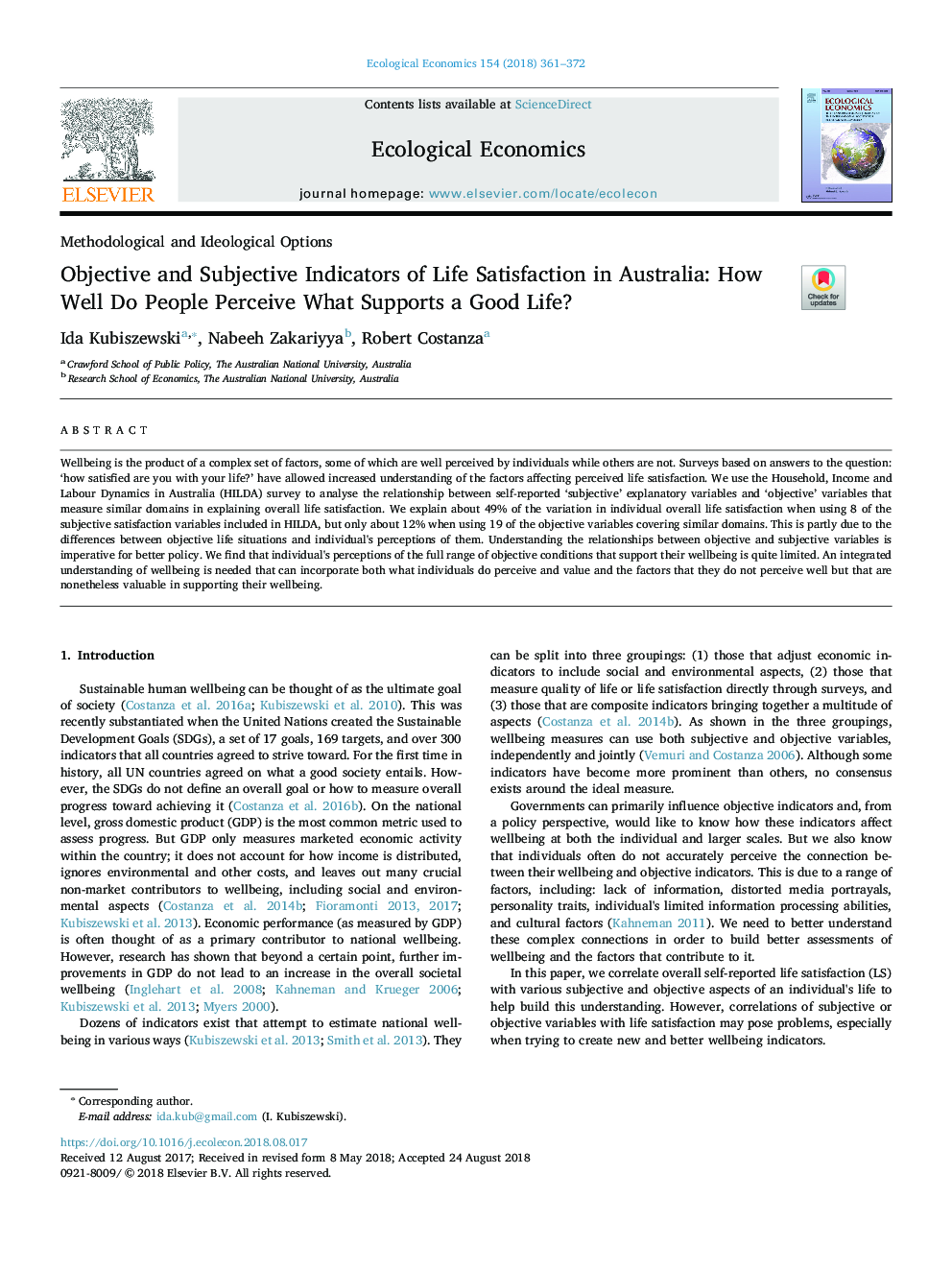| Article ID | Journal | Published Year | Pages | File Type |
|---|---|---|---|---|
| 11004765 | Ecological Economics | 2018 | 12 Pages |
Abstract
Wellbeing is the product of a complex set of factors, some of which are well perceived by individuals while others are not. Surveys based on answers to the question: 'how satisfied are you with your life?' have allowed increased understanding of the factors affecting perceived life satisfaction. We use the Household, Income and Labour Dynamics in Australia (HILDA) survey to analyse the relationship between self-reported 'subjective' explanatory variables and 'objective' variables that measure similar domains in explaining overall life satisfaction. We explain about 49% of the variation in individual overall life satisfaction when using 8 of the subjective satisfaction variables included in HILDA, but only about 12% when using 19 of the objective variables covering similar domains. This is partly due to the differences between objective life situations and individual's perceptions of them. Understanding the relationships between objective and subjective variables is imperative for better policy. We find that individual's perceptions of the full range of objective conditions that support their wellbeing is quite limited. An integrated understanding of wellbeing is needed that can incorporate both what individuals do perceive and value and the factors that they do not perceive well but that are nonetheless valuable in supporting their wellbeing.
Related Topics
Life Sciences
Agricultural and Biological Sciences
Ecology, Evolution, Behavior and Systematics
Authors
Ida Kubiszewski, Nabeeh Zakariyya, Robert Costanza,
